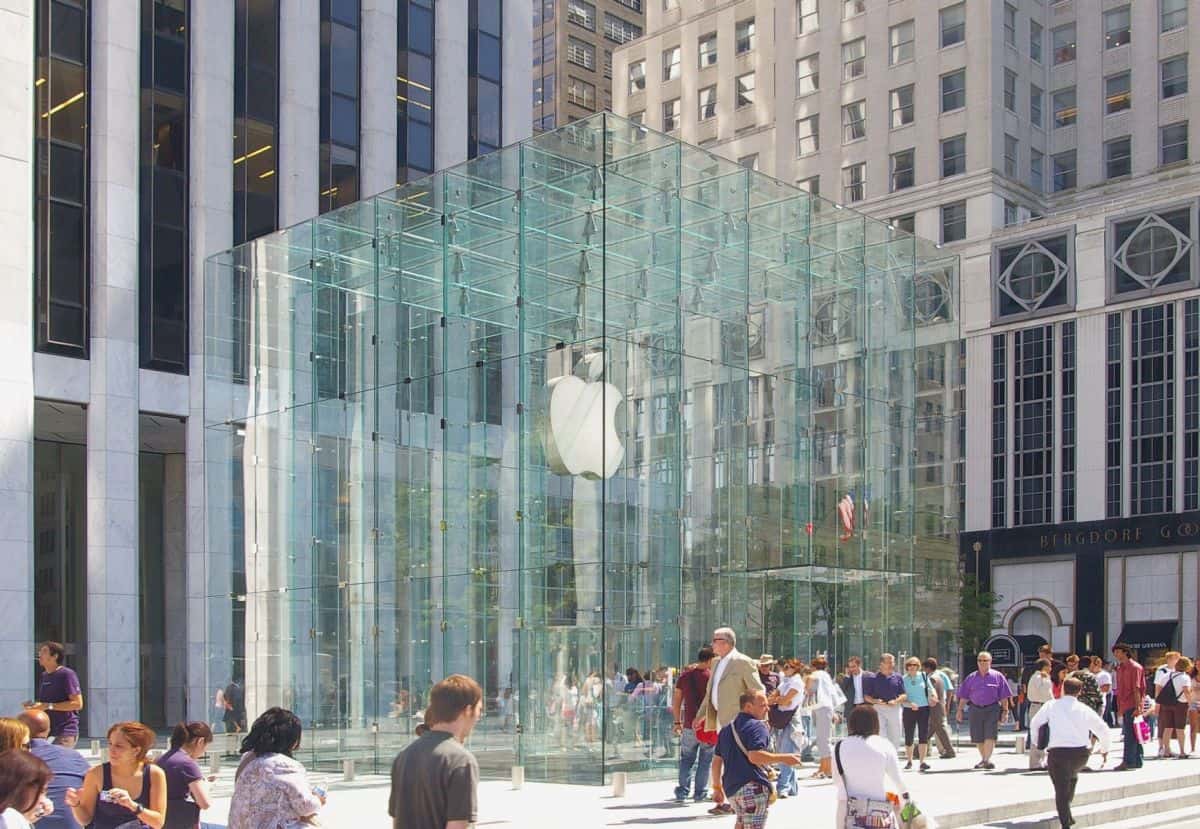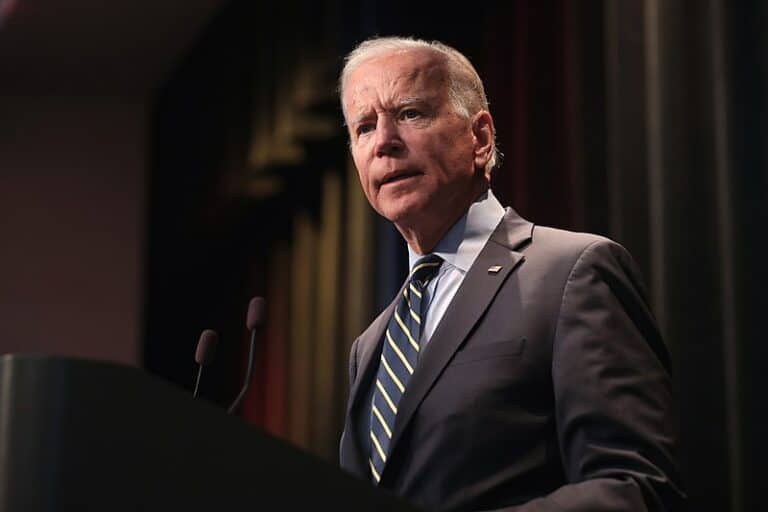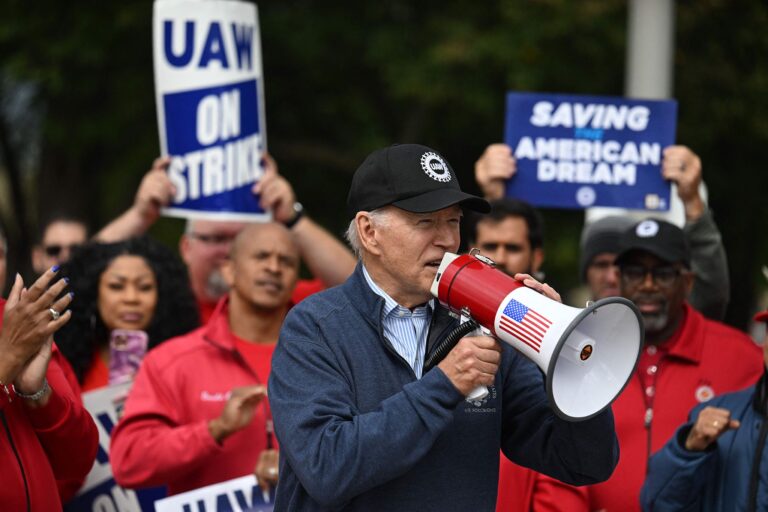Fran Swanson is a student at Harvard Law School.
On Tuesday, The Verge’s Zoë Schiffer reported that Apple blocked its employees from creating a Slack channel to discuss pay equity. Apple told employees that this was merely the application of its policy that “Slack channels for activities and hobbies not recognized as Apple Employee clubs or Diversity Network Associations (DNAs) aren’t permitted.” But, as Schiffer reported, the company has not applied that rule to prevent the creation of at least several other channels that violate the rule, like ones devoted to “fun dogs” and “dad jokes.”
What does labor law have to say about this? Discussing pay equity among coworkers seems pretty clear concerted activity for mutual aid and protection and so would be protected under Section 7. But, because of the Trump Board’s decision in Rio All-Suites, the employees’ requested method for conducting those discussions—Apple’s Slack—was not protected by Section 7. There, the Board held that Section 7 does not give employees a right to use employer-provided IT resources for Section 7 purposes, with a narrow carveout for when those resources are “the only reasonable means for employees to communicate with one another.” Luckily for the Apple employees, they still have a winning argument: even though use of Slack was not protected, Apple applied its Slack policy in a way that discriminated against Section 7 activity by allowing channels that violated its policy in other instances. Though Trump’s Board narrowed the doctrine of discriminatory application of employer rules with its decision in UPMC, employees here can likely argue that this is closer to the facts at play in the DC Circuit’s recent decision in CWA v. NLRB. The DC Circuit found, in part, that T-Mobile violated the NLRA when it applied its company email use policies to discipline an employee for emailing about her union organizing efforts but did not discipline other employees who violated the policy with emails about lost phone chargers or birthday cards.
But, as Professor Charlotte Garden noted, the Apple facts could be a vehicle for the Board to do what NLRB GC Abruzzo’s August memo has already signaled an appetite for: overruling Rio All-Suites and returning to Purple Communications. The flip from Purple Communications to Rio All-Suites turned on whether employer IT resources are equipment or “natural gathering spaces.” Under Purple Communications, Republic Aviation’s framework governing natural gathering spaces applied: there was a presumption that an employer that gives employees access to IT resources must let them use those resources on nonworking time for statutorily protected purposes, unless the employer could show “substantial functional justifications” for restricting use. (And, as Ben argued in the wake of Rio All-Suites, the Board not only reversed the Purple Communications presumption but also suggested that specific employee Section 7 activity must be balanced against the employer’s abstract property right, which results “not [in] balancing but simply deference to employer property.”)
The Purple Communications Board’s understanding of IT resources is even more apt after eighteen months where many American workplaces have shifted to remote work. Apple employees could argue that, in a global pandemic that will keep many of them working from home until at least January under current company policy, their use of Slack meets Rio All-Suites’ “only reasonable means” carveout. But the pandemic only highlights a fundamental shift in technology and our relationship to it that the Rio All-Suites Board ignored: these technologies are now the infrastructure for employee interactions in the same way that the walls of a breakroom or benches of a cafeteria have always been recognized. Zoom rooms, Google Hangouts, conference lines, and Slack channels have replaced the physical water cooler as spaces for employees to gather. It is a reality that has already been recognized in the First Amendment context: the Supreme Court’s unanimous 2017 decision in Packingham v. North Carolina relied on an understanding of social media websites as physical gathering spaces, “modern public square[s]” with those who use them acting as “town criers.”
It is possible that, even under Rio All-Suites, which endorsed a reading of Republic Aviation as centering on “face-to-face communications,” employees already have a colorable argument for using employer IT resources like Zoom and Google Hangouts that enable face-to-face communications. But rather than arguing for rights in particular types of employer IT resources based on how closely they approximate the relevant features of physical gathering spaces (simultaneity, face-to-face contact), advocates for workers should urge a broad reconsideration of the Section 7 right to these resources. First, a broad reconsideration of the right would be more likely to also benefit lower-wage workers, like the casino employees in Rio All-Suites or the call center employees in CWA, whose employers may provide them with access to email but not video communication platforms. Second, a broad reconsideration could recognize that what was at play in Republic Aviation was not something particularly special about gathering spaces but was instead about the symbolism of where those gathering spaces are located: work. A presumption that protects these conversations “at work”—whether they are occurring at work because they are in the same physical location as work or because they use the IT resources of work—not only logistically facilitates these conversations but legitimates them and their subjects. Simply, when talk of pay equity belongs at the workplace, so too may pay equity.
The events at Apple provide an opportunity to see how far the Board’s Democratic-appointed majority will go on these very live questions.









Daily News & Commentary
Start your day with our roundup of the latest labor developments. See all
February 16
BLS releases jobs data; ILO hosts conference on child labor.
February 15
The Office of Personnel Management directs federal agencies to terminate their collective bargaining agreements, and Indian farmworkers engage in a one-day strike to protest a trade deal with the United States.
February 13
Sex workers in Nevada fight to become the nation’s first to unionize; industry groups push NLRB to establish a more business-friendly test for independent contractor status; and UFCW launches an anti-AI price setting in grocery store campaign.
February 12
Teamsters sue UPS over buyout program; flight attendants and pilots call for leadership change at American Airlines; and Argentina considers major labor reforms despite forceful opposition.
February 11
Hollywood begins negotiations for a new labor agreement with writers and actors; the EEOC launches an investigation into Nike’s DEI programs and potential discrimination against white workers; and Mayor Mamdani circulates a memo regarding the city’s Economic Development Corporation.
February 10
San Francisco teachers walk out; NLRB reverses course on SpaceX; NYC nurses secure tentative agreements.